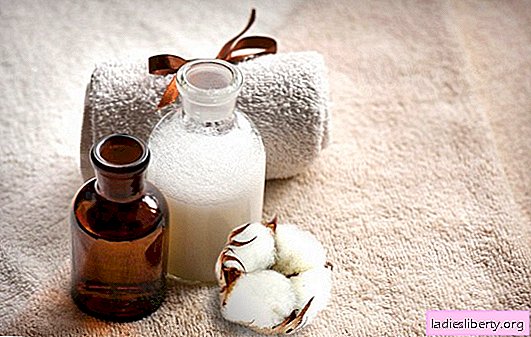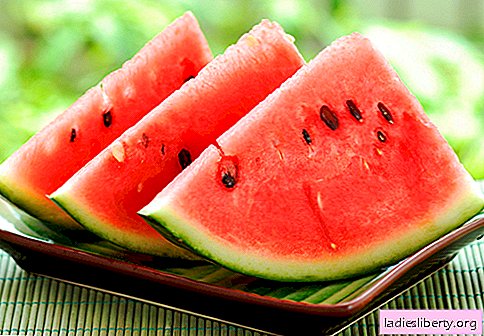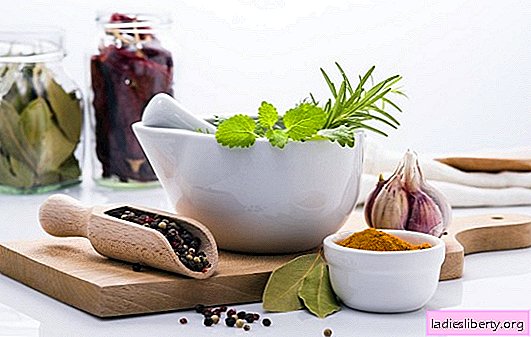
Vegetable oils from any, sometimes the most unexpected seeds are far from oilseeds, has long been a rarity. From grape and pumpkin seeds, flax and sesame seeds, almond seeds, peach, apricot, etc. - All, perhaps, can not be counted. The seeds of cotton (cotton), which are used to obtain cottonseed oil, were not an exception.
However, in Central Asia and America, culinary specialists and confectioners have long been using this product, praising its amazing qualities. So what is the benefit of cottonseed oil, and can it harm the body?
Some historical facts
Central Asian countries and America are leaders in cotton production, so it is not surprising that the “fashion” for cotton oil came from there. For example, Asians cook their signature pilaf exclusively on this product, claiming that cottonseed oil gives a unique aroma and taste to the dish. And in the USA it is used along with the famous peanut butter.
The cotton plant has spread from South America and has gained popularity thanks to the cotton fabrics widely used in everyday life. The oil content is small - only from 16% to 18%, but since the seed is a waste product and is no longer suitable for anything, production costs are justified.
Unrefined oil is used for technical and industrial purposes, and refined refined oil has been widely used in the food and cosmetic industries.
Chemical composition and quality characteristics
Unrefined natural product has a distinctive characteristic odor and dark reddish color. In the process of processing, cottonseed oil loses harmful impurities, becomes transparent and colorless.
Like many vegetable oils, cottonseed is a source of fatty acids that are not produced by the human body, but take part in the functioning of all systems at the cellular level. It is precisely because of the high content of monounsaturated and polyunsaturated acids that cottonseed oil provides invaluable benefits to the body. 100 g of product contains:
Saturated fatty acids - palmitic, stearic - 24.7 mg;
Monounsaturated fatty acids - oleic, palmitoleic - 19.4 mg;
· Polyunsaturated fatty acids (not synthesized by the human body, but are part of the cells, participate in metabolic processes) - linoleic, linolenic, arachidonic (Omega-6) - 50.5 mg;
· Tocopherol - vitamin E - 99.9 mg;
Phylloquinone - vitamin K - 247 mg;
Choline - Vitamin B4 - 0.2 mg.
INTERESTING! Cotton oil is a clear leader in the content of beneficial polyunsaturated fatty acids. If one tsp famous olive oil includes 2 g of fatty acids, then cottonseed - 7 g. But, unfortunately, the content of harmful saturated fatty acids (solid fats) is the same among the leaders - it is second only to palm oil and in one tsp. contains 3.5 g of saturated fat.
It is obvious that the benefits and harms of cottonseed oil are very closely related to each other, therefore it should be used carefully, weighing all the pros and cons. The high content of polyunsaturated acids and tocopherol contributes to the daily healing and purification of the body, but this product should not be abused! The best option is to add it along with other vegetable oils to salads and stewed vegetables - fortunately, cottonseed oil can tolerate heat treatment without losing useful qualities.
The benefits of cottonseed oil for the body
The rich composition provides a number of useful qualities of cottonseed oil. Thanks to vitamin E:
· Has a powerful antioxidant effect;
· Prevents the body from early cell aging;
· Strengthens the nervous system, protecting the body from depression and nervous disorders;
· Improves mood;
· Strengthens the protective function of the immune system.
Phytosterols (plant steroidal alcohols) have a beneficial effect on the functioning of the cardiovascular system:
· Make vessels more elastic;
· Clear of cholesterol plaques, remove harmful cholesterol from the blood;
· Prevent the development of heart attack and atherosclerosis;
· Interfere with the absorption of cholesterol in the intestine.
Polyunsaturated fatty acids, the so-called vitamin F, are fat-soluble beneficial substances that contribute to the rapid restoration of tissues, healing of wounds, including burns. They have anti-inflammatory and antihistamine effects - they help to cleanse the respiratory tract and restore the functions of the respiratory system. Together with vitamin D, they improve the absorption of phosphorus and calcium, thereby strengthening bone and muscle tissue. Vitamin F is essential for diabetes, for the treatment of immune and allergic inflammatory reactions, dermatoses and eczema.
Cottonseed oil is good for the skin of children and adults - it heals wounds, bites, small cuts, perfectly nourishes the skin, and eliminates chicks in the hands.
What harm can cottonseed oil do?
Any, even the most useful product, has contraindications or limitations. Although nutritionists say that cottonseed oil is not an allergenic product, you can only find out how your body reacts to it by tasting it (1/2 teaspoon is enough to start). This rich food product with a specific taste and smell can cause indigestion, diarrhea, and abdominal pain. If a negative reaction of the body is not observed, then the oil can be safely entered into the diet.
Use only refined, refined product. Unrefined cottonseed oil is harmful to the body as it is toxic. The natural pigment substance gossypol, which gives the crude oil a dark color and a specific smell, can affect the reproductive function of men. In China, studies have been carried out that have proven the effect of gossypol on the development of male infertility. In addition, the substance blocks the work of enzymes involved in the digestion process, and can cause severe poisoning.
Cooking use
Cottonseed oil is ideal for baking. The dough for pies, rolls, cakes and waffles becomes unusually lush, acquires a light nutty flavor. Refined oil, without a pronounced taste and smell, is able to absorb the taste palette of other components of baking, so the final product will always be without extraneous aromas.
A classic Asian pilaf is impossible to imagine without cottonseed oil. It is successfully used for making sauces, vegetable salads, eggplant caviar.
Application in cosmetology
The ability of cotton oil to regenerate and protect the skin is used in industrial and home cosmetology. It is useful to add it to ready-made masks and creams along with other vegetable and essential oils as a transporter - cottonseed oil is instantly absorbed, delivering all the beneficial substances to the deeper layers of the skin.
You can just put a little product on your hands at night and put on gloves - in the morning the skin will become unusually smooth, delicate, elastic.
Hair masks with cotton oil contribute to the awakening of hair follicles, activate hair growth, improve the structure, relieve split ends. You can’t use it in its pure form - just add a few drops to the purchased balms or hair masks.
Using cottonseed oil, you quickly feel its benefits and healing effect on the whole body.











